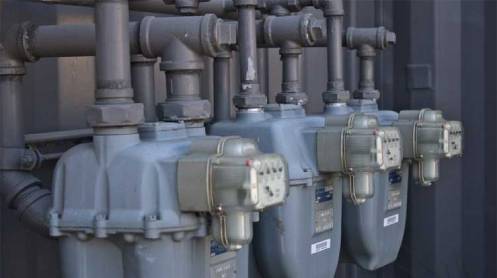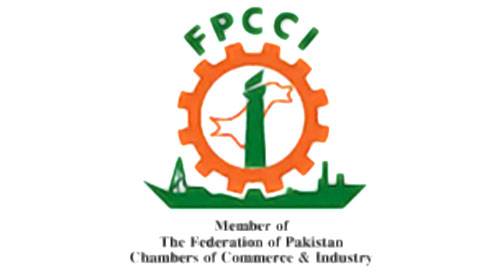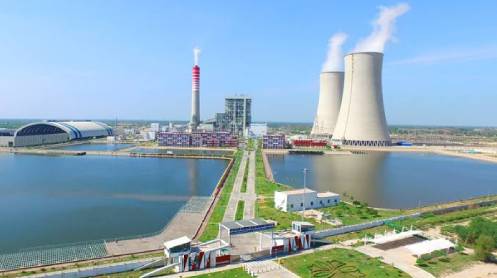KARACHI: President Karachi Chamber of Commerce and Industry (KCCI) Iftikhar Ahmed Sheikh has said that the caretaker setup has surpassed the elected Governments in terms of raising industrial gas tariff which has been raised by 118 percent since August 2023 from Rs1100 per MMBtu to Rs 2400 per MMBtu whereas further 40 percent addition of RLNG cost has taken gas tariff to a whopping and historically highest level of Rs 3200 per MMBtu which indicates an overall hike of 191 percent.
In a statement issued, President KCCI informed that Since October 2020, the gas tariff, which stood at Rs819 per MMBtu, has constantly been raised and within a year, it has been increased to Rs2400 per MMBtu whereas from January 2023, 40 percent RLNG cost has also been added, taking industrial tariff to a totally unbearable and unabsorbable Rs3200 per MMBtu.
He said that it was a matter of grave concerns that the Petroleum Division, which was in sheer disagreement with industries of Karachi at stakeholders’ meeting held with Prime Minister last month, has issued a notification to SSGCL to charge further up to 40 percent for RLNG to industrial gas supply.
“It appears to be a clear-cut indication that someone intends to close/ shutdown all the industries in Karachi. The recurring exorbitant increases in the energy tariffs (gas and power) under IMF dictates and other costly industrial inputs due to mammoth rupee-dollar parity and deprival of level playing field to compete globally have brought the industries at the verge of closure”, he warned, adding that the export-oriented industries in particular and import-substitute industries in general were confronting greatest challenges which have never been witnessed in the history of Pakistan where the industrial and export productions have come to a standstill due to unbearable cost of manufacturing.
Iftikhar Sheikh further said that many industries have already shut down their production in Karachi and a huge number of industries across Karachi were also fearing closure of businesses as not only gas but also the electricity price for export sector has been increased by 115 percent from Rs20 per KWh to Rs43.07 KWh and for general industries, electricity has been raised by 42 percent from Rs30.39 per KWh to Rs43.07 KWh. “Moreover, the hike in gas tariffs has also impacted the security deposits being submitted by industries to SSGC which have become totally unaffordable.”
“The miseries do not end here as the industries are compelled to suffer two days of gas load shedding a week”, he said, adding that this week, SSGC has come up with another shock by shutting down gas supply on Friday and Saturday instead of the usual weekly suspension on Saturday and Sunday. “Is SSGC going to bear the cost incurring on overtime wages if we call our labour force on Sunday for carrying out production”, he asked.
He particularly mentioned that domestic and fertilizer sectors were being provided cross-subsidy completely borne by the industrial and commercial consumers which was highly unfair particularly in case of fertilizer sector as it makes profits of up to billions of rupees, enjoys subsidy on gas and most shockingly, the locally produced fertilizer was being smuggled outside the country which was tantamount to smuggling gas.
Sharing some of the key reason behind high cost of doing business, President KCCI mentioned that minimum wages in Sindh have been raised to Rs32,000/- from Rs25,000/- per month, US Dollar against Pak Rupee has escalated by 20 percent from Rs234.13 in January 2023 to Rs281.05 on January 11, 2024, State Bank’s Policy Rate stands at the highest level of 22 percent, Export Refinancing & LTFF stood 19 percent plus banking spread. “All these and several other harsh factors brutally affecting trade and industry led to bringing down the national exports by 12.71 percent from $31.78 billion during July-June 2021-22 to $27.74 billion in July-June 2022-23 which also shows a downfall of 16.61 percent when compared with the target of $32.35 billion for the fiscal year 2022-2023.
He was of the opinion that government’s unwise policies and moves were having a devastating impact on the already ailing economy as the industries have started shutting down which would eventually reduce the exports as well as foreign exchange. The closure of industrial activities will also lead to massive lay-offs which may cause unrest by triggering law & order situation.
Iftikhar Sheikh stressed that the gravity of situation demands prudent decisions to support businesses through incentivization which would ultimately revive the economy rather than penalizing in the form of high cost of manufacturing. “The exorbitant and unbearable increase in utility charges have adversely affected Pakistan’s exports by rendering the value-added textile goods uncompetitive in the world markets. Reportedly, the textile industrialists participating in Heimtextil 2024 Exhibition in Frankfurt have expressed their inability to quote rates acceptable to foreign buyers as the exporters from regional competing countries have quoted comparatively much lower rates which Pakistani exporters simply cannot offer owing to high cost of production. “Under such adverse circumstances, the industries in Karachi would be unable to produce exportable goods at such exorbitant gas tariffs, hence, the policymakers must review decisions and immediately come up with reduced energy tariffs to ensure that the wheels of industries keep spinning”, he added while vociferously appealing the Prime Minister to intervene in the matter and call stakeholders’ meeting at the earliest to address these most perturbing issues in the national interest.
INDUSTRIES AT VERGE OF CLOSURECaretaker setup made highest hike of 191 percent in Industrial Gas tariff: President KCCI





